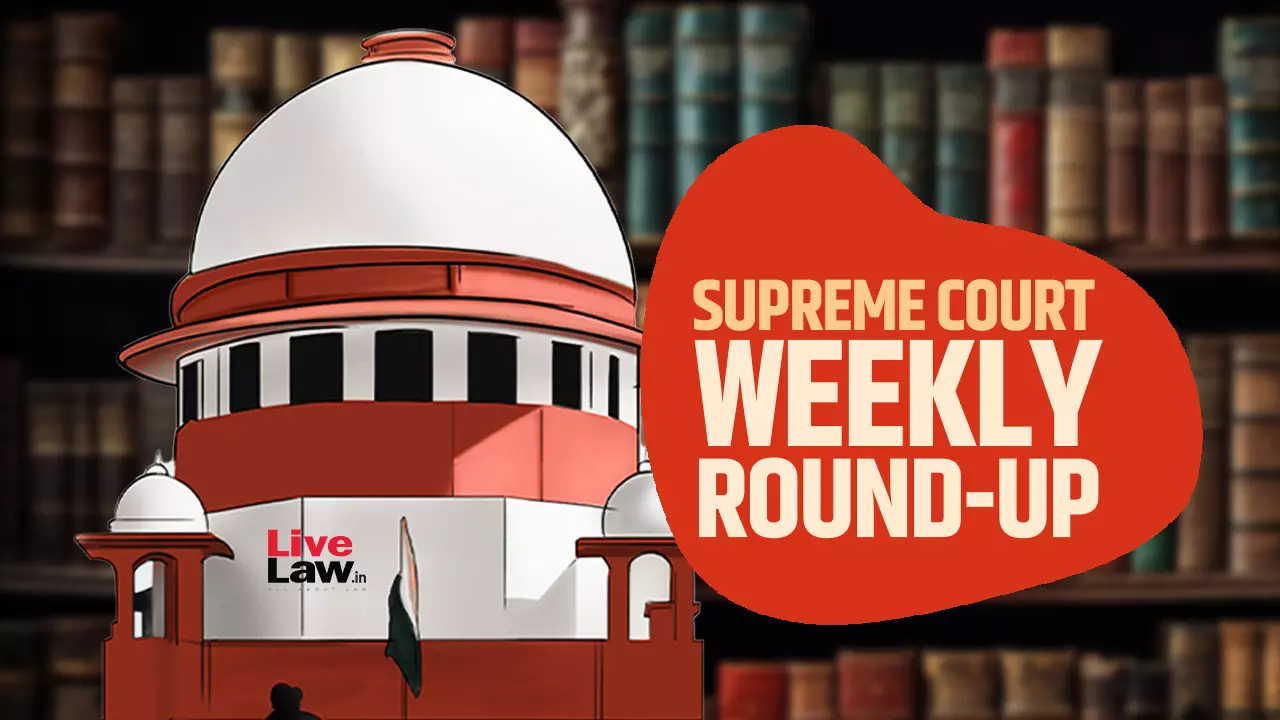Supreme Court Weekly Round-up: February 17, 2025 To February 23, 2025
Amisha Shrivastava
28 Feb 2025 9:01 PM IST

Next Story
28 Feb 2025 9:01 PM IST
Nominal IndexCitationsPublic Information Officer and Registrar & Anr v. Onkar Dattatray Kalmankar & Anr.| Special Leave To Appeal (C) No. 2783/2025 2025 Livelaw (SC) 210Tapas Kumar Palit v. State of Chhattisgarh 2025 Livelaw (SC) 211Maharashtra State Road Transport Corporation v. Mahadeo Krishna Naik 2025 Livelaw (SC) 212Sovaran Singh Prajapati v. State of Uttar Pradesh, Criminal...
